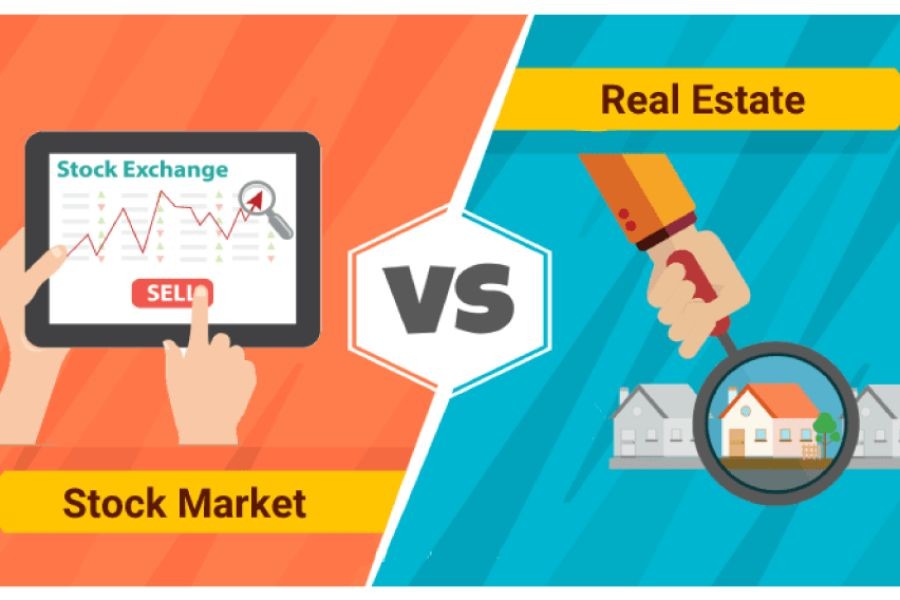Introduction
For many Australians, the decision between buying a house and investing in stocks is not merely a financial choice but a pivotal life decision. The allure of property ownership as a symbol of stability contrasts sharply with the dynamic, often volatile allure of the stock market. As housing prices continue to soar in cities like Sydney and Melbourne, and with the stock market providing potentially high returns, the debate remains complex. According to the Australian Bureau of Statistics, real estate accounts for 50% of household wealth, yet the Australian Securities and Investments Commission (ASIC) reports increasing interest in stock investments among younger Australians. This article delves deep into the long-term investment potential of both options, providing insights specific to the Australian economic landscape.
Understanding the Australian Housing Market
Australia's real estate market is renowned for its resilience and growth. According to CoreLogic, property prices in Sydney and Melbourne have seen a 7% annual increase since 2010, with 2024 witnessing a 12% surge in Sydney alone. This growth, however, comes against a backdrop of increasing interest rates and tighter lending policies by the Australian Prudential Regulation Authority (APRA). For Australians, investing in property offers the promise of capital appreciation, tax benefits, and the emotional satisfaction of homeownership. Yet, it is essential to consider the costs involved, including maintenance, property taxes, and mortgage interest.
Case Study: Savvy Homebuyer Success
Problem: Sarah, a young professional in Brisbane, faced the challenge of entering a competitive housing market with limited savings.
Action: She leveraged government incentives such as the First Home Owner Grant and opted for a shared ownership scheme to purchase a property in a growing suburb.
Result: Within three years, Sarah's property appreciated by 20%, and she refinanced her mortgage at a lower rate, reducing her monthly repayments.
Takeaway: Strategic use of government schemes and market research can significantly impact financial outcomes in real estate investment.
Navigating the Australian Stock Market
Investing in the stock market offers Australians an opportunity to diversify their portfolios and potentially achieve higher returns. According to the Reserve Bank of Australia, the ASX 200 index has delivered an average annual return of 8% over the past decade, outpacing many traditional savings accounts. However, the stock market's inherent volatility can be daunting. Investors must be prepared for fluctuations and consider long-term strategies, such as dollar-cost averaging and diversification across sectors.
Case Study: Successful Stock Investment
Problem: John, a 40-year-old IT professional, was keen to secure his retirement but wary of stock market risks.
Action: He diversified his investments across technology, finance, and healthcare stocks, utilizing exchange-traded funds (ETFs) to minimize individual stock risks.
Result: Over five years, John's portfolio grew by an impressive 35%, significantly enhancing his retirement savings.
Takeaway: diversification and strategic sector allocation can mitigate risks and enhance returns in stock market investments.
Pros and Cons: Real Estate vs. Stock Investment
Pros of Real Estate Investment
- Stable Asset: Real estate generally provides steady appreciation and rental income.
- Tax Benefits: Depreciation and mortgage interest deductions can enhance net returns.
- Tangible Asset: Property provides a physical asset that can be leveraged or improved.
Cons of Real Estate Investment
- High Entry Cost: Initial costs and ongoing expenses can be substantial.
- Illiquidity: Selling property takes time and incurs significant transaction costs.
- Market Fluctuations: Subject to macroeconomic factors and policy changes.
Pros of Stock Investment
- Liquidity: Stocks can be bought and sold quickly, providing flexibility.
- High Growth Potential: Stocks historically offer higher returns over the long term.
- diversification: Easy to diversify across industries and geographies.
Cons of Stock Investment
- Volatility: Market fluctuations can lead to substantial short-term losses.
- Emotional Risks: Investors may react impulsively to market changes.
- Complexity: Requires knowledge and ongoing research to manage effectively.
Common Myths & Mistakes
Myth: "Property prices always go up."
Reality: While historically rising, property values can stagnate or decline in economic downturns, as seen during the 2008 financial crisis.
Myth: "Stock investment is gambling."
Reality: Thoughtful stock investment involves research and strategy, differentiating it from gambling.
Myth: "Investing in property is less risky than stocks."
Reality: Property markets can be just as volatile, influenced by interest rates and regulatory changes.
Biggest Mistakes to Avoid
- Over-leveraging in Property: High debt levels can lead to financial stress, especially with interest rate hikes.
- Emotional Stock Trading: Reacting to market news can result in poor investment decisions.
- Ignoring diversification: Failing to diversify can expose investors to unnecessary risks.
Future Trends & Predictions
By 2028, experts predict a shift in investment trends as technology and sustainability become central to both real estate and stock markets. According to a report by Deloitte, the integration of AI and big data in investment strategies will enhance decision-making, offering personalized investment portfolios tailored to individual risk profiles. Additionally, the push towards ESG (Environmental, Social, and Governance) investing will drive both property developers and corporations to adopt more sustainable practices, appealing to a growing demographic of socially conscious investors.
Conclusion
Ultimately, the decision between buying a house and investing in stocks depends on individual financial goals, risk tolerance, and market conditions. Both investment avenues offer unique advantages and challenges. For Australians, a balanced approach incorporating both real estate and stock investments may provide the best path to financial security. Engaging with financial advisors and staying informed about market trends and regulatory changes is crucial to making informed investment decisions.
What’s your take on the best long-term investment for Australians? Share your insights below!
People Also Ask (FAQ)
What is the main advantage of investing in real estate in Australia? Real estate offers stable asset growth and potential rental income, supported by tax benefits like depreciation and mortgage interest deductions (Source: ATO).
How does the stock market's volatility impact investors? Volatility can lead to short-term losses, but investors who diversify and focus on long-term strategies often achieve higher returns (Source: RBA).
What are the biggest misconceptions about investing? A common myth is that property prices always rise, while stocks are risky. However, market fluctuations affect both, and informed strategies can mitigate risks (Source: ASIC).
Related Search Queries
- Real estate investment in Australia
- Stock market vs real estate
- Best long-term investments in Australia
- property market trends 2025
- How to invest in ASX stocks
- Pros and cons of homeownership
- Diversifying investment portfolio
- Impact of interest rates on property
- ESG investing trends in Australia
- Financial planning for millennials in Australia










































Sonja Corbitt
2 months ago